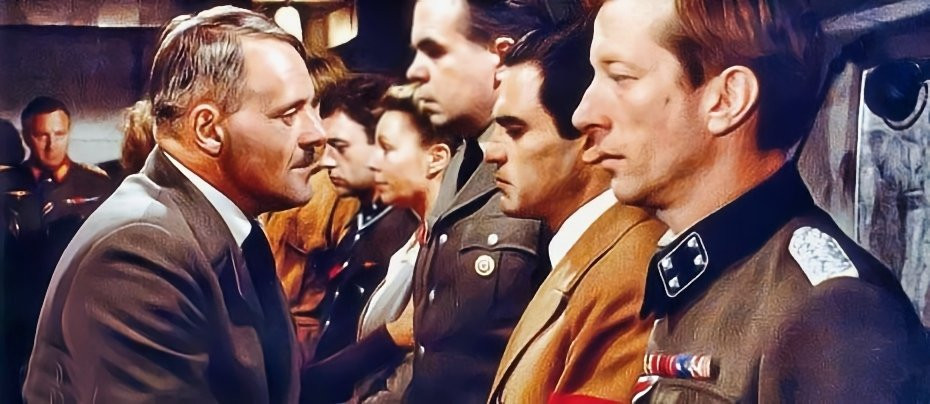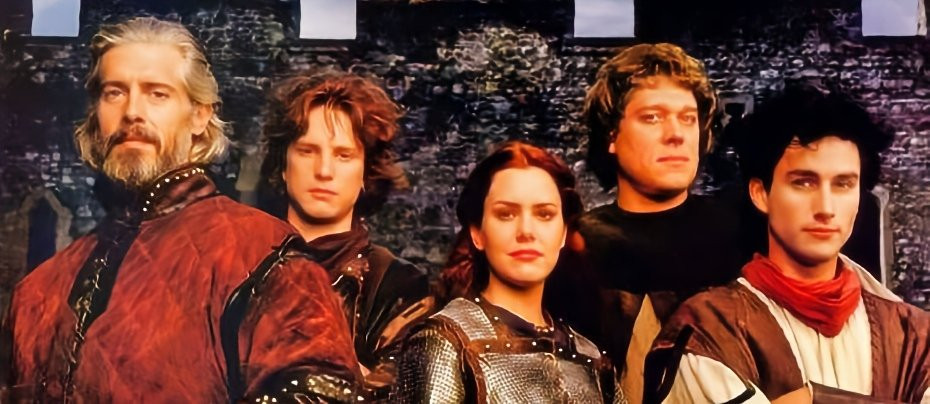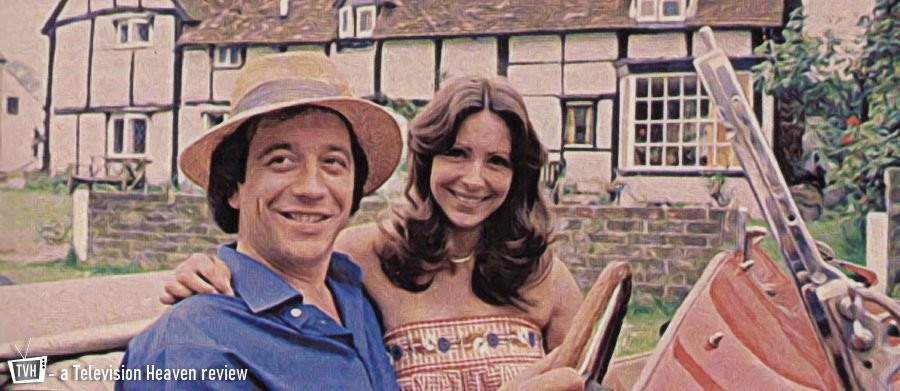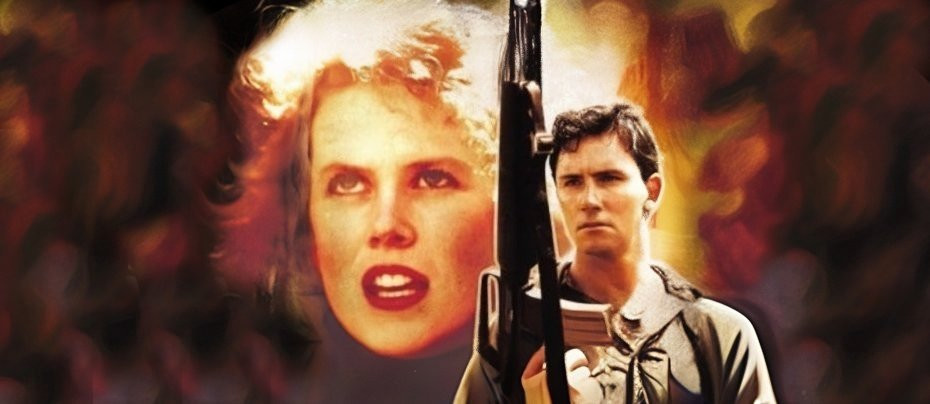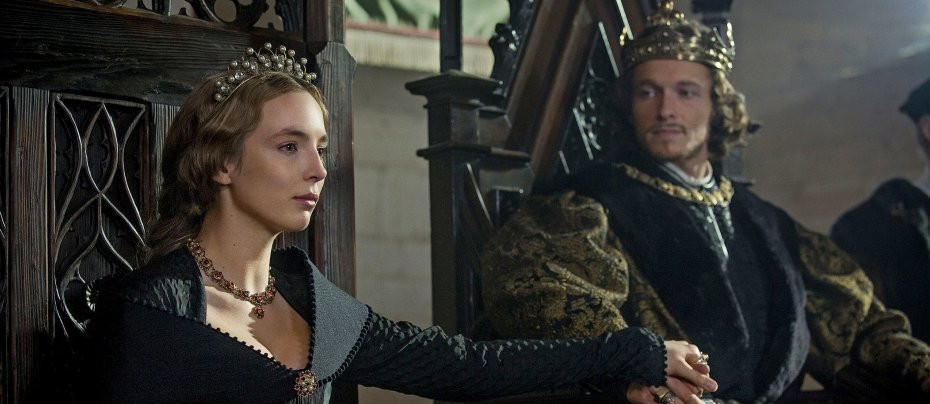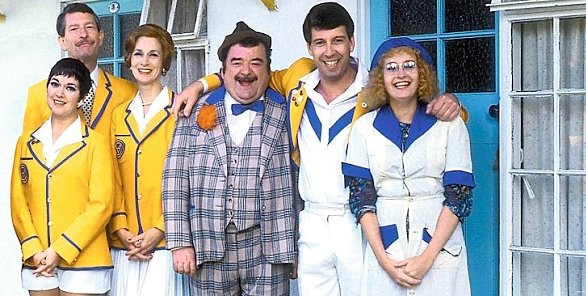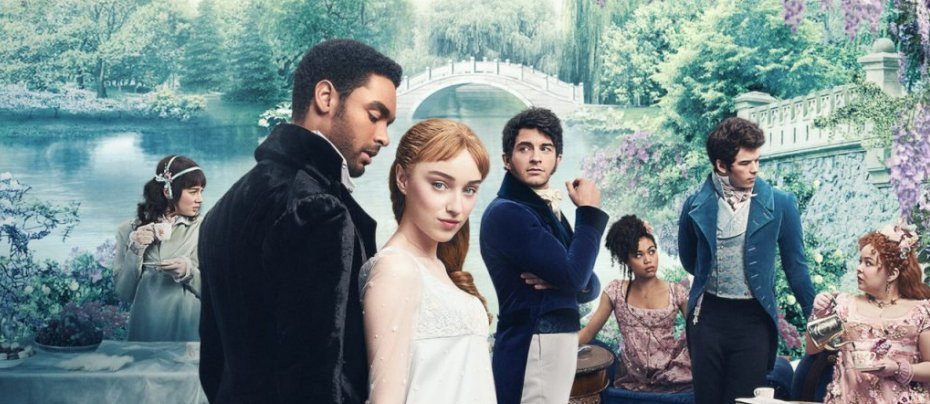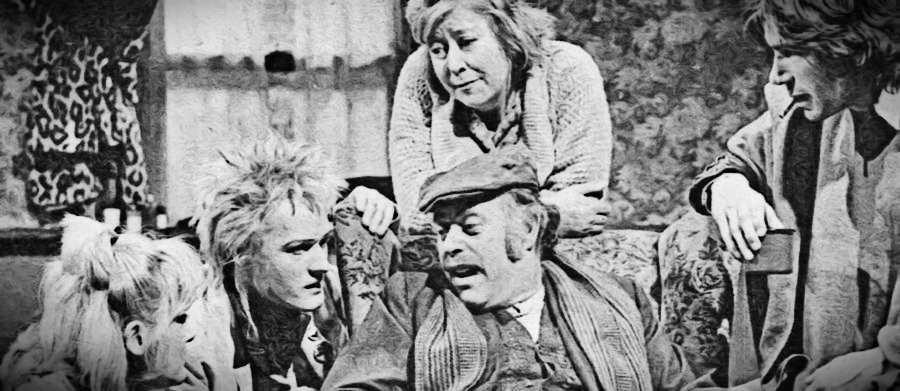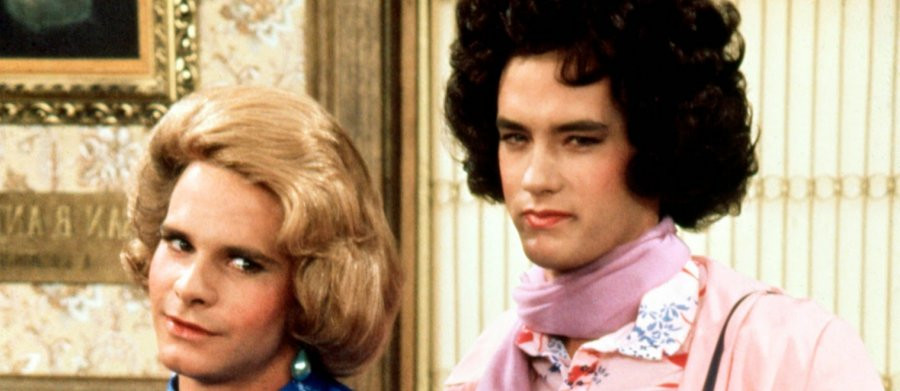
Shogun
1980 - United StatesThe fact that he worked in Hollywood, combined with envy that his novels sold in huge numbers, especially after the success of the television "miniseries" adaptation of Shogun, has deprived James Clavell of the literary respectability he deserves. He was actually one of the most intelligent of Post-War writers and a rare independent thinker. Typical of this is the way he never allowed his horrific experiences as a prisoner of war of the Japanese at the infamous Changi prison get in the way of a lifelong appreciation of Japanese culture.
The adaptation was perfectly timed, at the crest of the wave of what has been called "The Golden Age of the Miniseries," which lasted about a decade from the mid-1970s on. The success of Roots and Jesus of Nazareth emboldened the big American networks to invest huge sums in cinematic production values. They were rewarded with "event television" that had all America talking about the more successful series, at least for a few days.
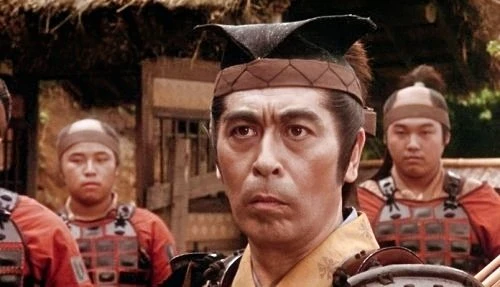
Viewers wanted spectacle and novelty, and Japanese history offered both. More than that, Shogun was the first, and to date only, major American production to be filmed entirely in Japan, both on location and at the legendary Toho studios, which have played host to Kurosawa, Godzilla, and the various cats of Studio Ghibli.
The whole Shogun project is a triumph of production. Director Jerry London, and cinematographer Andrew Laszlo make the most of their opportunities, with lots of glorious photography of the beautiful Japanese countryside and the historical monuments to which they were granted generous access. Fushimi Castle stands in for Edo Castle, while Osaka Castle is played by Himeji Castle, which keen eyed film buffs might recognise from You Only Live Twice and Kurosawa's Kagemusha.
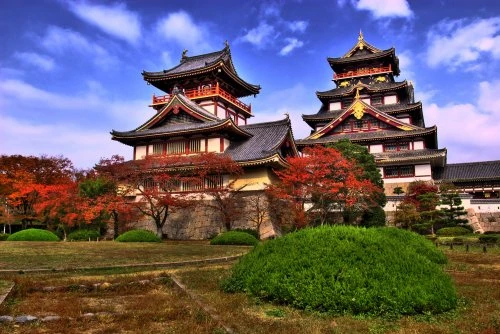
The involvement of the Japanese themselves was also a shrewd business move. The Japanese film and television industry has a long tradition of making 'jidaigeki' or period drama, ranging from 'chanbara' or samurai films resembling Western "swashbucklers" in tone to the more prestigious year long 'taiga' television series. The last years of the Sengoku "Age of the Warring States" and the early years of the Tokugawa Shogunate, with the pivotal Battle of Sekigahara in 1600 in the middle, has always been of particular fascination. It offers a wealth of big characters and epic scenes to any writer or producer. It is therefore no coincidence, but still convenient, that Shogun is set just before Sekigahara.
All this meant, among other things, that the Japanese were able to provide the Americans with costumes, props, sets, and, best of all, a huge pool of talented actors and experienced extras who understood exactly what was required, all at a relatively low price - Japan was a lot less expensive in those days. As a result, Shogun looks like a high quality Japanese production rather than a Hollywood pastiche of another culture.
Of course, it was still a Western production and therefore required a Western protagonist. Unlike many such projects, this is not a crass intrusion because Clavell based his hero, Pilot-Major John Blackthorne, on the real life English Pilot-Major William Adams, one of the first Protestants to settle in Japan and the first to attain the rank of samurai.

Sean Connery was Clavell's first choice to play Blackthorne, and anyone who has read the book can see why, but Connery had unhappy memories associated with filming You Only Live Twice in Japan and so declined. Clavell was initially unhappy with the eventual selection of Richard Chamberlain, but was ultimately very pleased with Chamberlain's performance.
Both parts of that are understandable. Chamberlain never really shook off his Dr. Kildare soap opera image among viewers of that generation, but those who were unaware of it found him an effective leading man in action adventures of the 1970s and 80s, including The Count of Monte Cristo, The Man in the Iron Mask, King Solomon's Mines, and Dick Lester's definitive 'Musketeers' films. In Shogun, he delivers everything that Connery could have done, a sympathetic "fish out of water" who is not without his flaws: one can see how his arrogance is going to get him into avoidable trouble and he is never completely cured of it.
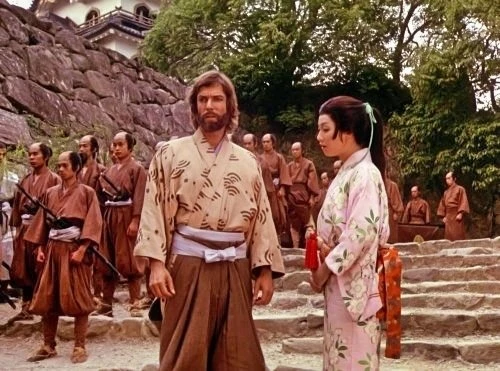
This is particularly true of his adversarial relationship with the Portuguese-backed Jesuit Missionaries, who fear that he threatens the lucrative trading monopoly they have established with Japan. In spite of this, they treat him with fair play and sometimes even compassion. The tension between their Jesuitical intrigues and their sincere faith is brought out in two strong performances, by the ever authoritative Alan Badel as their superior, the Visitor of Missions in the Indies, the sort of man of whom Saints are made, and Damien Thomas as a smooth interpreter and diplomat with a gift for turning up everywhere. True to his character, Thomas is said to have mastered an authentic Japanese accent on set with astonishing speed.
Between them they go to great lengths to counter the "Black Legend" Anti-Catholicism which is all too common in projects in which Roman Catholic clergy play a major role. As if that was not enough, Michael Hordern is perfectly cast as a kindly Benedictine - portrayed as a fierce opponent of the Jesuits within the Roman Catholic Orders - who befriends Blackthorne in a horrific prison, which may have been influenced by Clavell's memories of Changi.
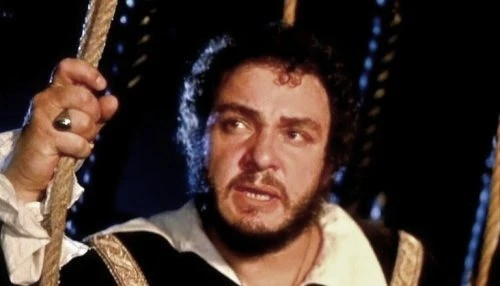
John Rhys-Davies steals every scene in which he appears as Blackthorne's Portuguese opposite number, Rodrigues, the foul mouthed, larger than life pilot of the treasure ship Blackthorne wants to capture. It was a career making role, and Rhys-Davies grabbed the opportunity with both hands, earning both an Emmy nomination and the subsequent role of Sallah in Spielberg's Raiders of the Lost Ark. He maintains a nice ambiguity to the end: Rodrigues and Blackthorne have much in common, and seem to have a genuine regard for each other, but can never forget they are on opposite sides.
Veteran British character actor George Innes enjoys himself in a mad scene and Orson Welles provides a suitably weighty narration. However, it is the Japanese cast who really bear the main burden of the show and carry off most of the acting laurels.

The production raised itself to a higher sphere when it managed to secure the services of Toshiro Mifune, the most famous, and arguably the greatest, Japanese actor in the world, and the face who essentially represents Japan in the way John Wayne represents America. He delivers an authentic study in leadership as the eponymous Shogun, or rather soon-to-be Shogun, or Military Dictator, that leaves no doubt that this is a man other men would follow. A scene in which he effectively seduces the samurai of another feudal lord is particularly convincing. It seems that Mifune took the role very seriously, rewriting his lines in an archaic style of Japanese more suitable to the period and keeping in character on set.
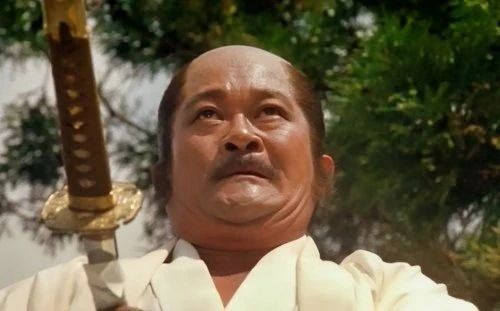
Furanki Sakai, playing that other feudal lord, was an experienced actor previously better known for comedy roles. He therefore brings an amiable presence to a character who does some truly nasty things to people. Hideo Takamatsu invests another unpleasant character with a dignity his actions do not merit. Both performances make a valuable point about the difference between appearance and reality. The same point is made in reverse by Yuki Meguro whose initially very unsympathetic character was gradually revealed as more sympathetic. Meguro got another of the show's Emmy nominations, even if, given that little of his backstory was shown in the final version, one cannot help wondering if the committee got him mixed up with Sakai.

This illustrates one of the essential weaknesses of the production: it is perhaps inevitable that an adaptation of less than ten hours' running time is bound to leave out much of the backstory, contextual detail, and the nuance that made the 1,100-page novel so compelling. The flow of events can sometimes be abrupt and the actions of the characters may seem inexplicable to those who have not read the book.
It also has to be said that the book itself is not very reliable on the history of what actually happened at that crucial point in Japan's story. It is a particularly poor guide to names. Most importantly, the Shogun is represented as open to the foreign ideas represented by Blackthorne when the reality is that the Shogunate soon began a persecution of Christianity that led to Japan's cultural isolation and a consequent retardation of her technological development which lasted until the end of the regime 250 years later.

While the book is better on the difference between Japanese and European customs at the time, it sometimes exaggerates. For example, the Japanese have never been as obsessed with ritual suicide as Westerners, who seem fascinated by the subject, tend to assume.
As a result, although Shogun was a huge commercial and critical success in America and all around the world, it was received coolly by Japanese themselves who felt, not without reason, that they did this sort of thing better on their own.
Nevertheless, rewatching it four decades after it was made, the production values remain very impressive - especially the many parades, processions, and other set pieces - and the acting is of a consistently high calibre. One still gets a fine sense of the confusion of a man alone in a completely alien culture, and that culture's fear of what men like him might mean for their world.
Seen this show? How do you rate it?
Seen this show? How do you rate it?
Published on December 3rd, 2020. Written by John Winterson Richards for Television Heaven.


